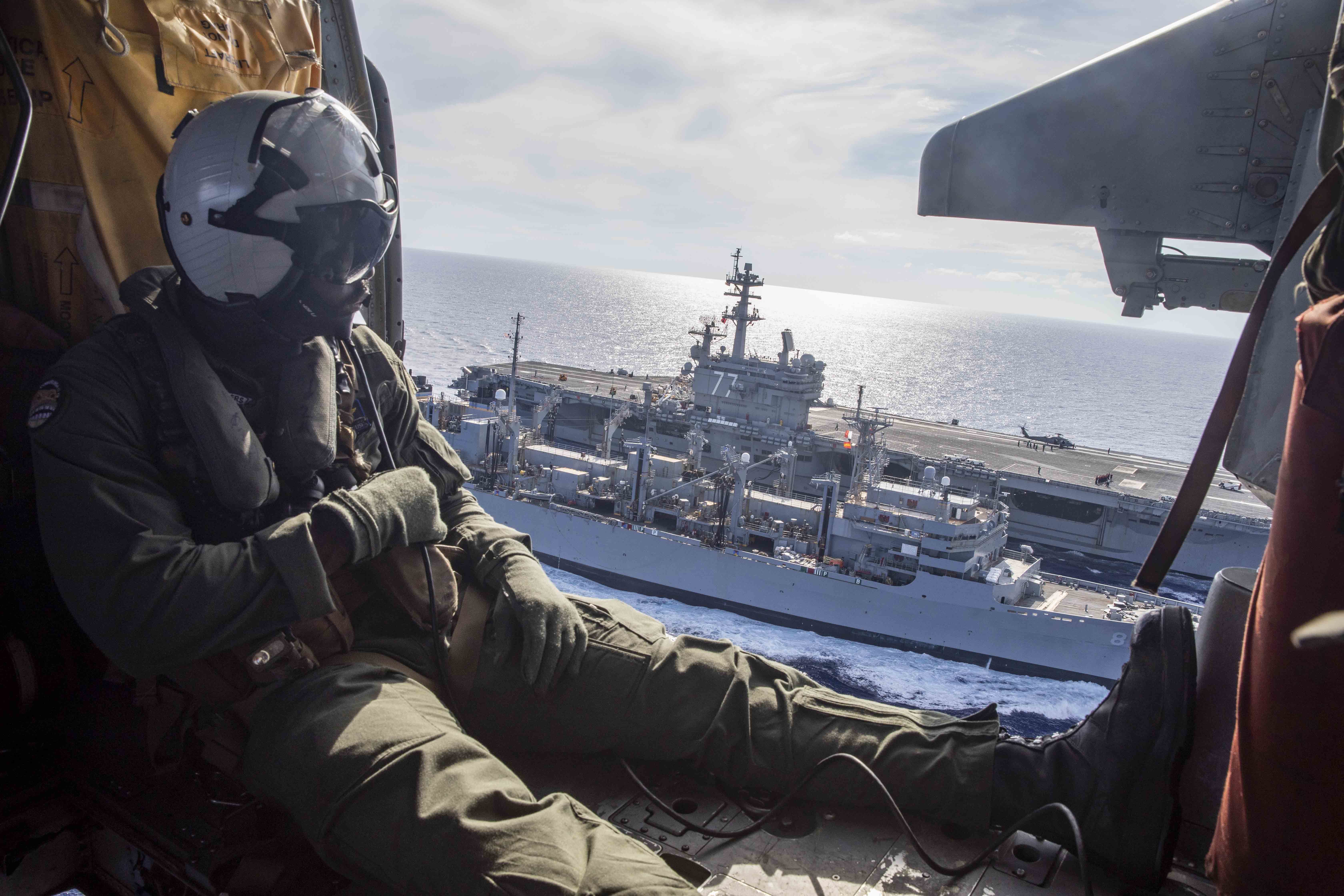
SAN DIEGO – The U.S. Navy needs to shed 20 years of how it rearmed and repaired its fleet and prepare for a future of increased risk and contested logistics, the commander of the U.S. Pacific Fleet said Tuesday.
The old way the U.S. moved material forward in the most cost-effective manner is no longer sufficient for how the Navy and Marines will fight in the future, said Adm. Samuel Paparo, citing the worldwide proliferation of guided weapons and satellite surveillance.
“Operating in uncontested environments our logistics enterprises operate on business principles. Those business principles were to resupply the force at maximum efficiency so that the American taxpayer dollar could be applied to combat power at the greatest point of need,” he said during a keynote at the WEST 2023 conference co-hosted by the U.S. Naval Institute and AFCEA.
“In our operational plans for high-end combat, we’ve got to think less in terms of maximum efficiency and more in terms of maximum effectiveness.”
The reality of vulnerable supply lines for naval units forward and the difficulty repairing and rearming ships forward has become a tricky problem set for the Navy and the Marines that are shaping concepts to fight spread across the sea.
“The country is facing the prospect of combat loss and we must be clear-eyed about that,” Paparo said.
“We no longer have the sanctuary of time and distance from adversary weapons.”
While the services have said their new emerging concepts like Distributed Maritime Operations (DMO) and Expeditionary Advanced Base Operations (EABO) are meant to be used in any geography, the ultimate challenge is the vast distances in the Pacific. Marines and surface ships in the Western Pacific will have to operate under a web of Chinese ballistic missiles and will have to remain concealed while still striking targets.
The basic tenets of DMO would have ships operating at extreme distances and hitting their targets simultaneously while remaining hidden.

“The idea of [DMO] is this notion that we’re going to sail at such a distance and in such a formation that we don’t present ourselves as an obvious military formation that brings to their enemy fires, but while still maintaining the ability to provide mutual support to one another,” Paparo said.
The Marines’ EABO concept would have small units land ashore with anti-ship weapons or create an expeditionary landing site for fighters with the ability to move to other locations throughout the battlefield quickly. Making the effort work will require a combination of pre-positioning material and quickly flowing supplies across thousands of miles of ocean.
“For most people use a sustainment and they think root logistics,” Paparo said.
“It’s also repair activities. It’s also rearming activities. It’s also… medical capabilities.”
Answering a question on fixing battle-damaged ships, Paparo described an “arc of contested sustainment that is not precisely at the zone of fire but nor is it back way in the rear where you would normally expect to be able to execute those activities in a sanctuary.”
For example, Paparo described flyaway repair teams that could meet battle-damaged ships for repairs, “including equipment that can be transported to the point of need to execute those repairs quickly and to get units back into the fight,” he said.
Paparo said the fleet had experimented with rearming ships at sea and flyaway repair teams at the recent Valiant Shield and Rim of the Pacific exercise series.
The logistics conversation came as Paparo outlined the growing boldness of Chinese actions in the Western Pacific citing the recent lasing of a Philippine Coast Guard vessel on a resupply mission by a Chinese ship and the continued ballistic missile testing and air and sea exercises around Taiwan.
“We are living in consequential times, a period of intense competition and high stakes,” he said.
“We cannot normalize this intentional malign behavior by the PRC and the Chinese Communist Party, which we see in the form of territorial aggression against its neighbors, including consistently failing to adhere to [maritime and rules of the road] with unprofessional and unsafe behavior at sea.”





